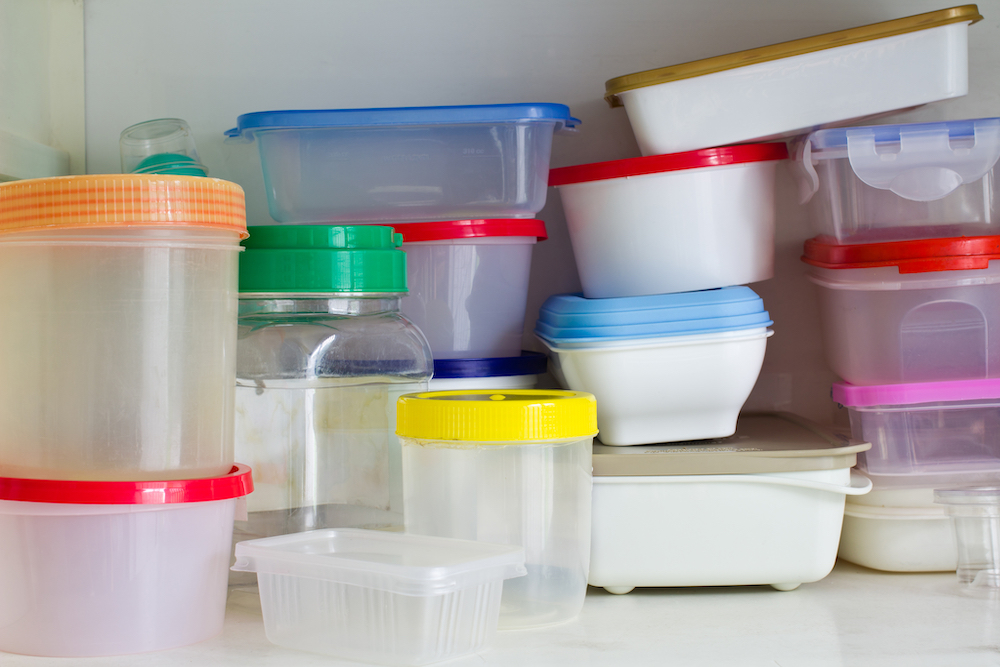Endocrine disruptors are chemicals which:
- mimic a natural hormone, fooling the body into over-responding to the stimulus (e.g., a growth hormone that results in increased muscle mass), or responding at inappropriate times (e.g., producing insulin when it is not needed)
- block the effects of a hormone from certain receptors (e.g., growth hormones required for normal development)
- stimulate or inhibit the endocrine system and cause overproduction or underproduction of hormones (e.g., an over-active or under-active thyroid)
The very first step towards taking control over endocrine disruptors is the ability to identify them! Because endocrine disruptors can boost chances of cancer, risk your metabolic health and mess up your fertility and immunity, it is important to know what they are, assess your exposure to them and work to reduce your contact so you can reduce your risk of health impact.
Sadly, endocrine disruptors are everywhere. Today, let’s look at your kitchen and identify sources of ED’s there. From food items to perfumes and from plastics to electronics; EDs are all over the kitchen!
Tips To Reduce Endocrine Disruptors In The Kitchen
- Start by ditching the plastic containers. Plastic is being banned around the world as it is highly toxic to human health — store food items in glass containers. Whether you have to store it in the pantry or the fridge; replace your plastic bottles with glass ones.
- Never heat food in the microwave in plastic containers. Heat food in ceramic or glass containers.
- Use cast iron or stainless steel cookware. Free of endocrine disruptors and is very healthy for cooking food. Ditch the non-stick cookware and go old school to get rid of this common source of endocrine disruptors.
- Drink water in glass, ceramic or stainless steel cups. Plastics have got to go.
- Dishwasher detergent may have endocrine-disrupting chemicals. An easy swap are eco friendly natural detergents free from perfumes and dyes.
- Eat organic. Conventional produce and meats have exposure to pesticides, insecticides, fungicides, fertilizers, antibiotics, and hormones.
- Remove plastic wraps from things before you store them in the pantry or fridge. Place them in glass containers. After grocery shopping, a lot of items are packed within cling wraps, and that is not safe.
These are some of the most basic yet essential tips that can help you reduce your exposure to endocrine disruptors in your kitchen. Start making a change today!
Want to discuss how endocrine disruptors may be impacting your hormone balance? Book a FREE health strategy consult with me.




